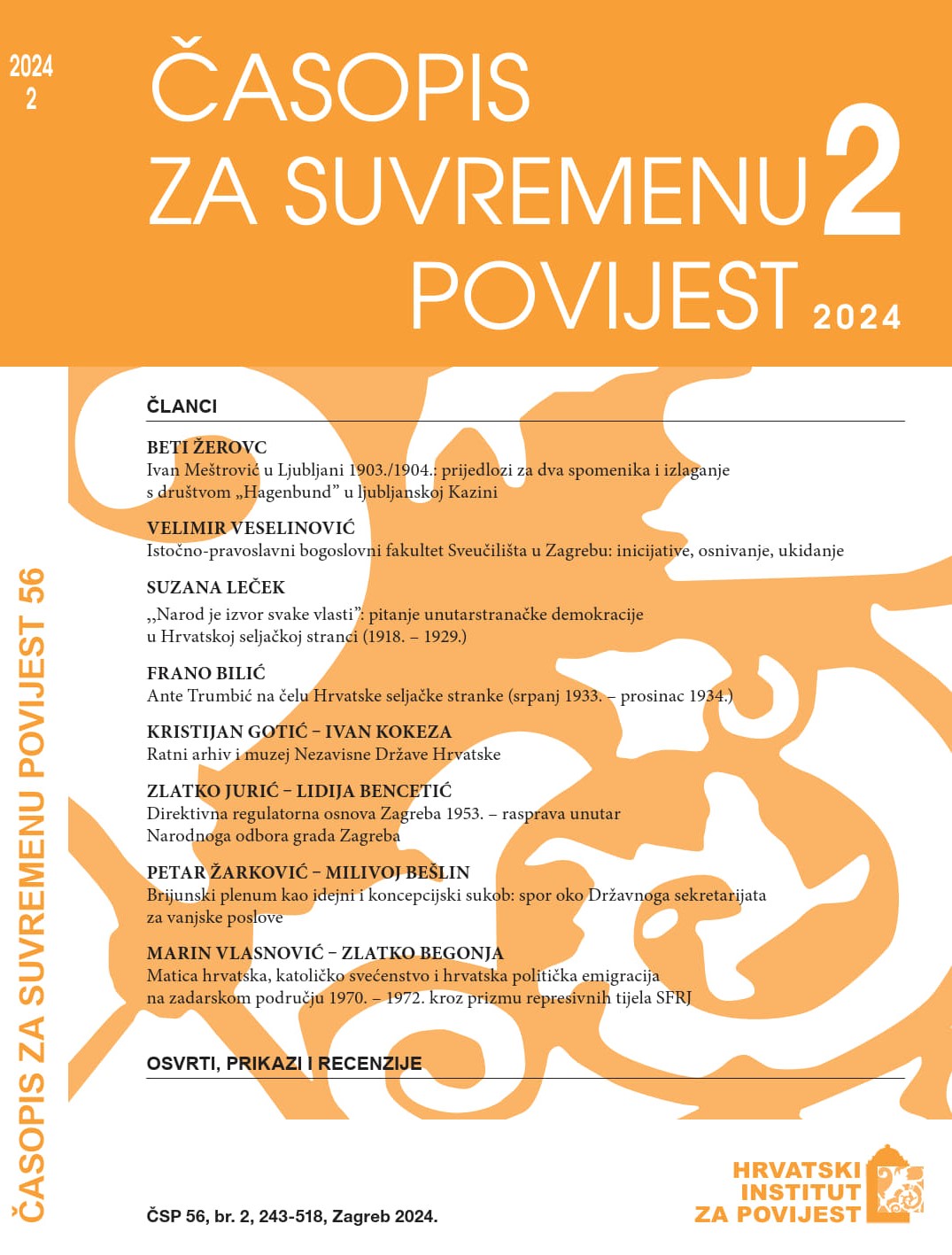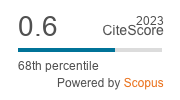The Directive Regulatory Basis of Zagreb 1953 – Polemic within the People’s Committee of the City of Zagreb
DOI:
https://doi.org/10.22586/csp.v56i2.34192Keywords:
Croatia; Zagreb; Directive Regulatory Basis of Zagreb 1953; People’s Committee of the city of Zagreb; general urban plans; Vlado AntolićAbstract
The proposal for the urban solution of the city of Zagreb from 1953 consists of the urban document entitled Directive Regulatory Basis of Zagreb 1953, printed on eight pages and of a map 71 x 99 cm. This redevelopment plan was created by the Institute for Urban Planning of the People’s Committee of the City of Zagreb; the signatory of the proposal was the director of the Institute, Vlado Antolić. The basis from 1953 is the continuation of the urban proposal from 1949 and the two are connected by the chief urban planner Antolić and his associates, Josip Seissel and Stjepan Hribar. Professional analyses published in periodicals reacted to the published proposal, as did the People’s Committee of the city of Zagreb which had to accept or reject the proposal. The People’s Committee established a Council Commission for Communal Affairs for drawing up a regulatory basis for the city of Zagreb, which gave a negative assessment. The paper analyses the process of creation of the Directive Regulatory Basis of Zagreb 1953, the discussions from meetings, the report of the Council Commission for Communal Affairs for the creation of the regulatory basis of the city of Zagreb as well as the reasons for the refusal.
Downloads
Published
Issue
Section
License
Copyright (c) 2024 authors and journal

This work is licensed under a Creative Commons Attribution-NonCommercial 4.0 International License.
Copyright holders are the publisher Croatian Institute of History and the authors. Journal of Contemporary History is an Open Access journal. Users are allowed to read, download, copy, redistribute, print, search and link to material, and alter, transform, or build upon the material, or use them for any other lawful purpose as long as they attribute the source in an appropriate manner according to the Creative Commons licence CC BY-NC. The papers published in Journal of Contemporary History can be deposited and self-archived in the institutional and thematic repositories providing the link to the journal's web pages and HRČAK. Journal does not charge article processing charges (APC). The editors assume no responsibility for statements of fact or opinion made by contributors.




